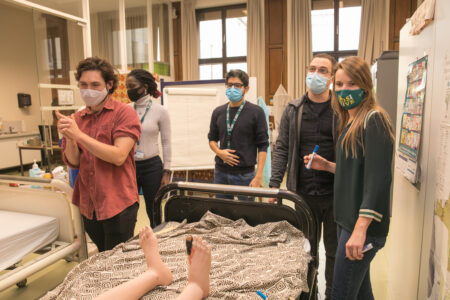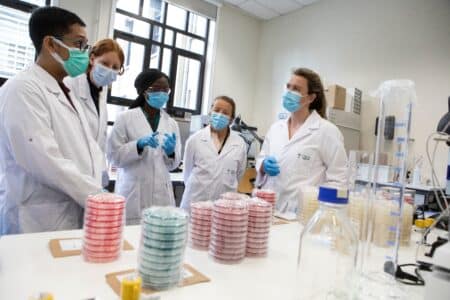The fast-paced field of global health grabs headlines for various reasons. The industry constantly plays a key role in shifting health trends – from outbreaks like the COVID-19 pandemic and mpox to the ever-growing problems of ageing populations and climate-driven health inequities. Moved by this, many professionals are eager to join, seeing it as the only pathway towards creating a healthier future for generations to come.
One lesser-known but just as important area is tropical medicine. It’s known as a specialised field in the prevention, diagnosis, and treatment of diseases that are prevalent or re-emerging in tropical and subtropical regions and beyond. Unlike other medical fields, tropical medicine uniquely combines public health, epidemiology, and research to tackle diseases like malaria, tuberculosis, and neglected diseases which affect billions in warmer climates and resource-constrained settings worldwide.
This goes to show that as global interconnectivity grows, tropical medicine’s role in international public health comes even more significant. International travel, climate change, and urbanisation are factors that drive the spread of infectious diseases across borders; these challenges require coordinated strategies that look beyond just the medical factors, but also consider the social determinants of health. Aiming to develop effective and sustainable systems and policies to protect health for all, especially vulnerable populations in the Global North and South.
Malaria causes 600,000 deaths annually, with the majority of cases in sub-Saharan Africa. Tuberculosis is behind over 1.6 million deaths a year, with many cases occurring in tropical regions. And they’re not stopping. What once only occurred in the Global South is now happening in the Global North as well – amplifying the need for more health professionals with expertise in tropical medicine and international public health.
To answer this call, the answer lies in a postgraduate education at institutions striving to advance tropical medicine and public health for all, such as the Institute of Tropical Medicine (ITM) in Antwerp.

ITM is home to a diverse community of students and staff, ensuring no shortage of perspectives and insights. Source: Institute of Tropical Medicine
Postgraduate certifications in Tropical Medicine and International Health
Since its establishment in 1906, ITM has been renowned worldwide for its expertise in tropical medicine and international public health. The institute is at the global forefront of research, education, and services – from developing the most widely used test to detect sleeping sickness and closely monitoring the arrival of exotic mosquito species in Belgium, ITM is home to several international projects and clinical trials, publishing over 400 peer-reviewed publications annually.
Here, you can advance your knowledge and skills in tropical medicine and international health through several postgraduate certificates: Introduction to Tropical Medicine and Challenges in International Health (ITMCIH), Advanced Tropical Medicine and Challenges in International Health (ATMCIH), Tropical Medicine and International Health, and Research Approaches and Challenges in International Health. All can be combined in different ways to suit specific career aspirations.
Whichever you choose and however you combine certifications, you will learn by doing. There’s a lot of bridging theory with real-world examples as well as case studies about health and well-being of populations in vulnerable situations, the effects of climate change on health, management of reproductive and child health programmes, and more.
“The programmes are highly relevant due to their focus on topics such as infectious diseases, climate change, health system strengthening and the specific needs of vulnerable populations,” says Loes Meukens, who is pursuing a postgraduate certification in Research Approaches and Challenges in International Health.
“Many of the lecturers are active researchers who bring their findings into the classroom, bringing together theory and real-world examples. The programmes also include a lot of group work, allowing me to directly apply the research methods and knowledge.”
Most courses are held on campus, requiring a physical presence in Antwerp. For applicants facing barriers to completing the programmes in person, ITM offers support – students from countries within the European Economic Area (EEA) benefit from reduced fees, and can spread their coursework over five years without additional administrative payments.

Source: Institute of Tropical Medicine
Strong career outcomes
A postgraduate certificate takes 16 to 26 weeks to complete – by the end of which, you’re more confident and competent to take your next career step. Early exposure to and engagement with the labour market ensures this.
Each programme includes group work, lab training, and flipped classrooms within diverse peer groups, simulating the teamwork required in professional settings. ITM also invites selected NGOs to present students with testimonials, case studies and projects, sharing relevant work experience.
“Completing this programme contributed to my professional growth by opening the door to a position as a research assistant in the Pharmaceutical Public Health unit,” says Meukens. “This has been an incredible opportunity to obtain experience in research and public health.”
This combination of outcomes is a strong return on investment, positioning graduates for leadership roles in tropical medicine and international public health. Through the multidisciplinary, context-adapted approach of their programmes, graduates stand out for how ready they are to develop, implement, and evaluate health interventions and formulate communication strategies in low-resource or tropical environments and beyond. They’re equipped to confront major health challenges such as vector-borne diseases, non-communicable diseases, and access to quality healthcare, especially for vulnerable populations.
Of course, those aren’t the only advantages. Upon completion, students will be well-positioned for career advancements and placements within national and international health organisations, such as the World Health Organization (WHO), Médecins Sans Frontières, and various NGOs focused on global health. A previous ITM study revealed that a majority of graduates were working in Africa and Europe, with 70% involved with NGOs.
Follow the Institute of Tropical Medicine on Facebook, X, Instagram, and LinkedIn. To find out more about ITM and their work, listen to their podcast “Transmission.”












